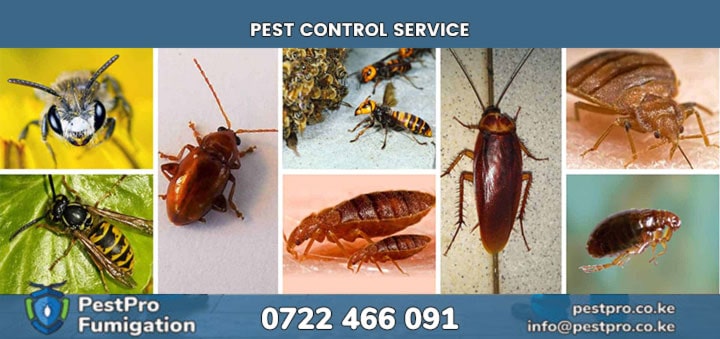Cockroaches
Cockroaches are among the most prevalent pests in Nakuru County, thriving in both urban and rural settings. These nocturnal insects are commonly found in kitchens, bathrooms, and areas with food waste or moisture. The American cockroach and German cockroach are the dominant species, capable of spreading bacteria like Salmonella and E. coli. Their resilience and rapid reproduction make them a persistent challenge for households and businesses, necessitating regular sanitation and professional fumigation to control infestations.
Termites
Termites pose a significant threat to structures across Nakuru County, particularly in areas with wooden buildings or furniture. Subterranean termites, the most common type, build mud tubes to access wood, causing extensive damage to homes, fences, and crops like maize. Their colonies can number in the thousands, silently destroying property if left unchecked. Regular inspections and soil treatments by pest control experts are essential to prevent costly repairs, especially in rural areas where timber is widely used.
Bed Bugs
Bed bugs are a growing concern in Nakuru County, particularly in residential areas, hostels, and hotels. These small, reddish-brown insects feed on human blood, leaving itchy welts on the skin. They hide in mattresses, furniture, and cracks in walls, making them difficult to detect. Their ability to survive months without feeding complicates eradication efforts. Heat treatments and targeted chemical applications by professionals are effective in eliminating bed bugs, ensuring safe living environments.
Rats and Mice
Rodents, including rats and mice, are widespread in Nakuru County, especially in agricultural zones and urban slums. These pests contaminate food, chew through electrical wiring, and spread diseases like leptospirosis and hantavirus. The Norway rat and house mouse are common culprits, often invading homes, granaries, and warehouses. Their rapid breeding and nocturnal habits make them difficult to control without integrated pest management, including traps, baits, and sealing entry points.
Mosquitoes
Mosquitoes are a major public health concern in Nakuru County due to the region’s warm climate and occasional stagnant water sources. Species like Anopheles, Culex, and Aedes transmit diseases such as malaria, dengue, and chikungunya. They breed in standing water, including clogged drains, ponds, and containers. Community efforts to eliminate breeding sites, combined with professional fogging and larvicide treatments, are critical to reducing mosquito populations and protecting residents.
Ants
Ants, particularly black ants and fire ants, are common in Nakuru County, invading homes, gardens, and farms. These pests are attracted to sugary substances and food scraps, often forming trails into kitchens and pantries. While most ants are harmless, fire ants can deliver painful stings. Their colonies are difficult to eradicate due to their complex social structures. Baiting systems and perimeter treatments by pest control services effectively manage ant infestations.
Weevils
Weevils are a significant agricultural pest in Nakuru County, targeting stored grains like maize, wheat, and beans. The red flour weevil and maize weevil are particularly destructive, burrowing into kernels and rendering crops unfit for consumption. Farmers face substantial losses if infestations are not addressed promptly. Fumigation of storage facilities and the use of airtight containers are recommended to protect harvests from these persistent pests.
Flies
House flies and fruit flies are abundant in Nakuru County, especially in markets, restaurants, and areas with poor waste management. These pests spread pathogens like typhoid and dysentery by contaminating food and surfaces. Flies breed in decaying organic matter, making proper waste disposal critical. Professional pest control measures, including fly traps and residual sprays, help reduce their populations in both residential and commercial settings.
More pest Control ServicesPestPro Facebook Page
Medium
